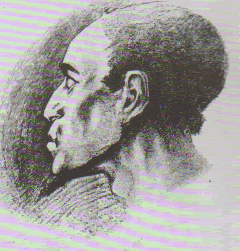I have been expecting some money to be wired to my Nile Bank account since Friday and today I decided to go and find out if I was rich. I made the way to the bank with the sun beating down on me mercilessly, only to find my account balance was as meagre as it was thje last time I had checked.
I got to thinking and I remembered I had seen an ad that said I could get a pin number from the bank, which could enable me to access my bank credit from my mobile phone., I figured it was about time I got one of those so as to avoid useless journeys to the bank like the one I had just taken. Anyway, I entered the bank, filled in a brief application form and I had a pin number in no time. The young lady then went on to ask if I needed a pin number to enable me to do my banking from my computer. I figured why not and like that I had joined the online banking community. I can now check my account balance, pay a few bills and buy airtime from any computer with internet access.
However, after trying out the process I started thinking about a few things.
The first one is the access bank people have to our banking information. I say this because I gave the young lady only my account number and account type and when she was giving me the pin numbers she addressed me by my name. I figured that she was probably checking out the state of my account. I was reminded of how a while back a friend of mine had jokingly said that the easiest way of having all the female yuppies in Kampala know how much money you had was by opening an account with Standard Chartered Bank. For some reason most bank tellers and customer service people in Uganda’s major banks are 20-something females.
It is also advisable to immediately change the password/Pin number that the bank gives you to one you are more comfortable with ( this option is available on the site) because the person who gives you the details knows your account number and the pin number you have just been given.
I am in no way saying that it is common practice for bank employees to go digging about other people’s finances or secretly cataloguing customers bank accounts and pin numbers, but we have to wary of the bad apples.
I also thought about somebody hacking into my account. I have a personal (purely academic) interest in hacking and over the years I have come to learn how easy it can be to get hacking tools like password grabbers and keyloggers from the internet. If hackers installed any of these programmes on a computer in a café it would be easy for them to get a list of Usernames and Passwords of all the people that would have used a specific computer. If that computer had been used for online banking then the dangers become obvious.
In my experience Ugandans can sometimes be careless with their passwords and usernames. I don’t how many times I have tried to log onto a password-protected site only be immediately taken to the account of somebody who had carelessly accepted the option of having his/her username and password memorised by the computer for direct future access. I have had cheeky fun chatting under some other person’s Yahoo ID, for example.
I am hoping that the banks that have introduced online banking do take the necessary precautions to protect their clients from the dangers above.
Monday, January 23, 2006
Subscribe to:
Post Comments (Atom)

No comments:
Post a Comment